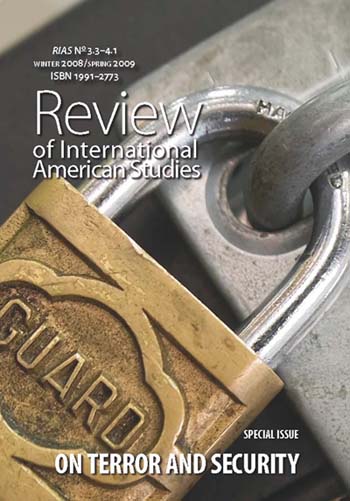‘The Long War’: Who is Winning the Battle for Ideas?
‘The Long War’: Who is Winning the Battle for Ideas?
Author(s): Frank FurediSubject(s): Language and Literature Studies, Studies of Literature, Other Language Literature, Cultural Anthropology / Ethnology
Published by: Wydawnictwo Uniwersytetu Śląskiego
Summary/Abstract: From the outset this has been a very confusing conflict. For over seven years western leaders have never tired of telling the world that the War against Terrorism is principally an ‘ideological struggle’ or a ‘battle of ideas’. But the concept of a ‘battle of idea’ is rarely elaborated. In official proceedings the term has a uniquely shallow and rhetorical character. Official statements self-consciously avoid spelling out the ideology that they are tackling. Recycled historical allusions to Nazism, totalitarianism and Stalinist Russia serve as a substitute for clarity about the ideological character of the contemporary threat. Other than denouncing it as ‘extremist’, ‘totalitarian’ or ‘fanatical’ there is a studied silence about the content of the ideological threat facing Western democratic societies. This remarkable reluctance to spell out the issues at stake betrays a sense of defensiveness and hesitancy toward the conduct of the battle of ideas.The most striking symptom of this defensiveness is the linguistic confusion shown in official communications. Policy makers appear to lack a language through which they can give meaning to contemporary realities. Indeed they appear to devote more energy toward lecturing people what words not to use than to offer a clear explanation of their objectives. Jonathan Evans in his first public speech in November 2007 as head of MI5 pleaded with newspaper editors to avoid words that help the enemy. He insisted that we must ‘pay close attention to our use of language’ and avoid words that encourages the association of terrorism with Islam since that would undermine the Government’s ability to win the hearts and minds of Britain’s Muslim communities (Evans, 2007). Soon after this statement reports were circulated indicating that officials were ‘rethinking’ their approach and ‘abandoning what they admit has been offensive and inappropriate language’. The acknowledgement that UK officials expressed themselves in a language that was offensive and inappropriate betrays a palpable sense of disorientation in Whitehall. According to reports the term ‘war on terror’ will no longer be heard from ministers and the threat will not be described as a ‘Muslim Problem’ (Norton-Taylor, 2007). It is as if the ‘Careless Talk Costs Lives´ campaign of 2nd World War has been rehabilitated –only this time there is confusion about who the enemy is and what to call it.
Journal: Review of International American Studies
- Issue Year: 3/2009
- Issue No: 3-4
- Page Range: 35-45
- Page Count: 11
- Language: English

